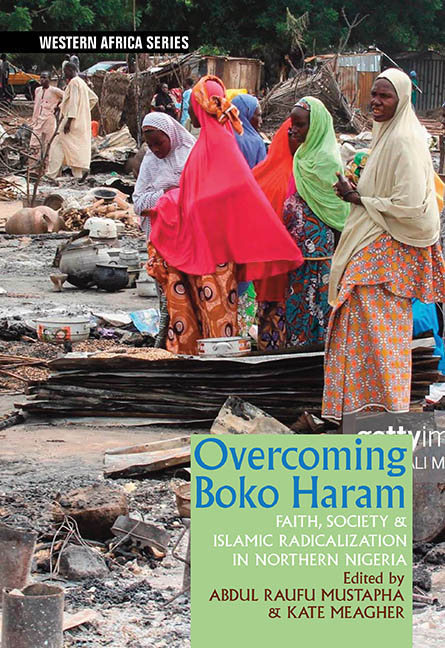Book contents
11 - Conclusion Toward a whole-of-society approach to counter-radicalizationAll Contributors
Published online by Cambridge University Press: 21 March 2020
Summary
Introduction
As the Boko Haram insurgency heads into its second decade, it seems no quick end is in sight. What are the possible scenarios for the future trajectory of Boko Haram, and in particular what is its endgame? While predicting the future is a very hazardous business, plausible endgame scenarios can be envisioned based on reflection on the metamorphoses of Boko Haram, careful analysis of the dynamics of its current situation, and prognosis of its emergent trends. The formal declaration of the Boko Haram Caliphate and its territorial control over much of Borno State are no more. Yet the ‘technical military defeat’ proclaimed by President Muhammad Buhari in 2015 has not prevented Boko Haram from carrying out attacks not only in rural areas, but in big towns and even military bases, often killing Nigerian soldiers – as many as 100 soldiers in one attack. Negotiations leading to the release of Boko Haram captives in exchange for freeing incarcerated leaders of the insurgency came about more than a year after the proclamation of the technical defeat. It seems that decisive defeat leading to complete surrender and total cessation of hostilities is not on the immediate horizon. Yet what scenario is likely to unfold?
This chapter explores this question by drawing insights from the literature on the growth, decline, and end of past insurgent insurgencies and civil wars. Theoretically, one may argue that there are only a few possible outcomes to an insurgency: the government may defeat the insurgents; the insurgents may defeat the government; both parties may reach a negotiated settlement; there may be a stalemate; or the insurgency may transform into something else, such as organized crime. We suggest that rather than one distinct ending, Boko Haram is likely to continue its previous patterns of transformations and factionalization, precluding decisive outcomes. Unless distinctively different approaches are taken by the state, likely endgames include a negotiated settlement with some factions, the further entrenchment of the war economy with its continuous menacing of rural areas by others, and some elements potentially becoming absorbed into the global terrorist networks of the Islamic State.
- Type
- Chapter
- Information
- Overcoming Boko HaramFaith, Society and Islamic Radicalization in Northern Nigeria, pp. 304 - 324Publisher: Boydell & BrewerPrint publication year: 2020

